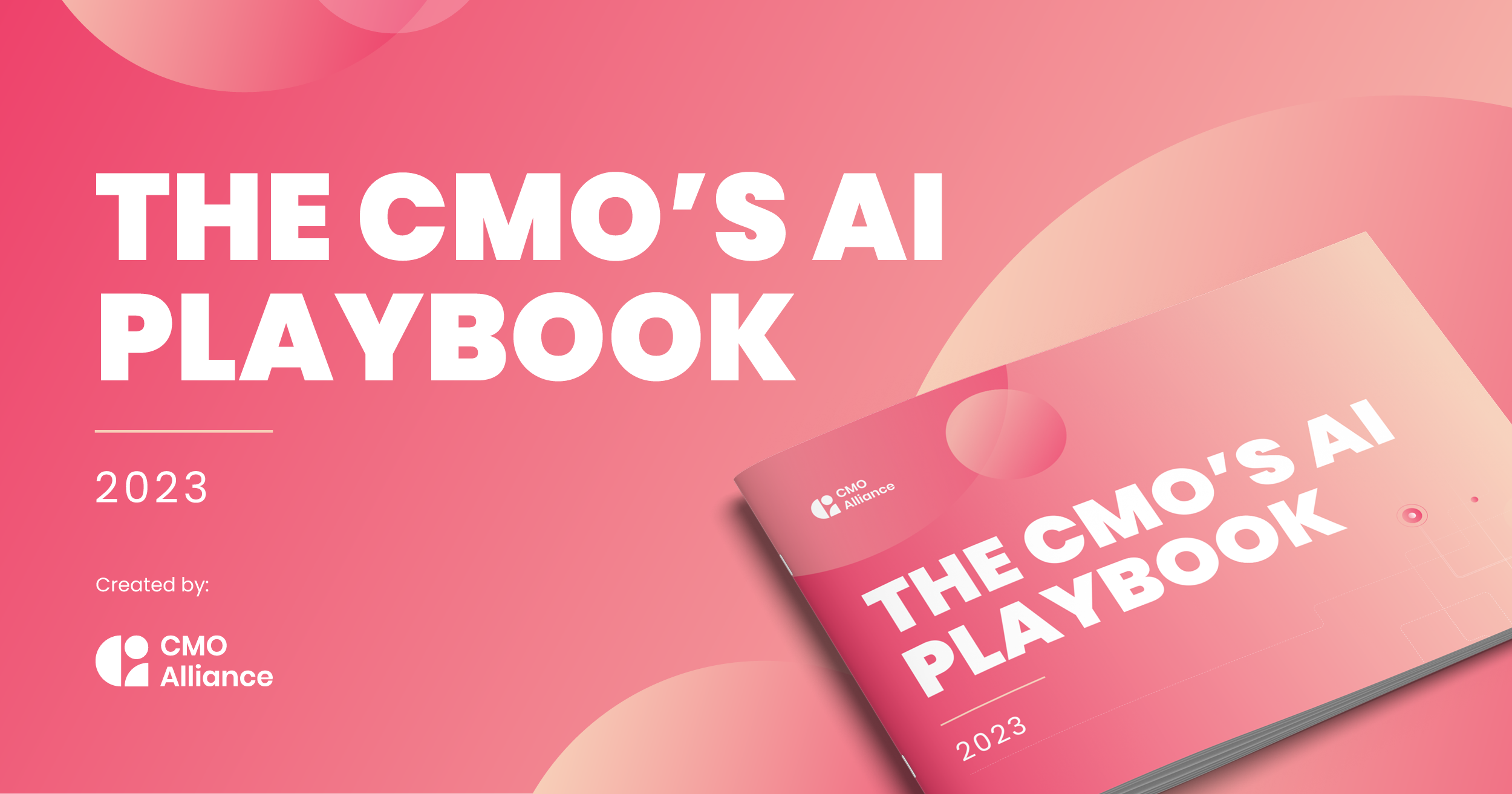With the rapid advancement of AI technologies in the B2B space, there are exciting opportunities alongside novel risks. Realizing AI's benefits for businesses while earning public trust requires a thoughtful, ethical approach centered on corporate values. B2B Organizations have a profound responsibility when building and deploying AI systems that impact other businesses and ultimately, people.

Organizational responsibility for AI ethics
It is critical for organizations to be proactive in their understanding of how to be as AI-compliant as possible – including data protection, security, ethics, and overall training. This AI governance, if taken with a top-down approach, can help those orgs investing in AI to be ahead of the curve. B2B organizations are adopting this mindset, and it starts by having C-Level Exec teams as the Executive Sponsors as well as orchestrators across their functional organizations.
Marketing leaders’ responsibilities for AI marketing compliance
From a Marketing perspective, Marketing leaders (ie: CMOs, VP level) would need to consider a subset of the requirements, ie: privacy laws around customer data (1st, 3rd party), data protection assessments of their Marketing Tech (MarTech) investments, ethics around personalization and hyper-targeting automation.
Adherence to data privacy laws
Adhering to privacy laws isn’t a new concept for B2B Marketers, as there have been constant considerations for GDPR (General Data Protection Regulation) & CCPA-type (California Consumer Privacy Act) regulations that impose consent and transparency when collecting customer data.
This will become even more critical as third-party data becomes more restricted, and Marketing teams will have to rely on first-party data as an essential part of their business strategy to drive revenue and growth. Adopting privacy-enhancing techniques like federated learning and differential privacy can allow relevant personalization while minimizing data exposure.
While there are currently few regulations focused purely on AI usage, maintaining a privacy-first approach to AI will likely mean you're ahead of the curve. Many regions, including the European Union, USA, and China are all currently debating new regulations and ethical standards for AI.
Reviewing new additions to the techstack
Secondly, when it comes to MarTech, there still is a massive exponential growth of this landscape – with over 11K vendors in the space. Marketing teams have to work closely with their IT counterparts to review data protection assessments to analyze risks like data breaches and customer trust impacts when deploying net-new Marketing technology with AI capabilities.
When it comes specifically to generative AI advancement, Marketers also have to consider potential risks around impersonation, deepfakes, and copyright with tools that are leveraged for creative marketing.
AI marketing ethics training for teams
Lastly, ethical training for Marketing teams that are overlaying AI while executing daily tactics is definitely a must-have. Ethical use of microtargeting and personalization will come under increasing scrutiny, explainability and avoiding unintended bias is crucial.
Marketing teams that are heavily invested in paid media will need to factor truth in advertising principles when applying to claims around AI-based capabilities and benefits. Marketing AI requires proof and substantiation, so definitely will be integral for the right level of alignment between the Marketing, Product, and Sales teams to ensure there are unified messaging themes.
This training should also teach the teams to weed out the bias and discrimination that can arise in large language model, as well as ensure they're aware of the ethical considerations around intellectual property that have arisen from the use of AI

Proactivity is essential for ethical AI success
Those Marketing teams that are using techniques to adhere to data privacy, making the time to train their teams around data ethics & avoiding unintended bias with AI systems, while implementing best practices for their AI capabilities, will be the ones that will find the least complexity in running their marketing efforts in 2024 and beyond.
By taking a proactive, collaborative approach to AI adoption focused on ethics and responsibility, B2B marketers can help lead their organizations into an innovative yet trustworthy future.
FAQs on AI data privacy
Q: How does AI impact data privacy in marketing?
A: Large language AI models, like Chat-GPT, that have become increasingly popular rely on learning the inputs and prompts you put in. It then uses those learnings to enhance answers to questions from other users. This means that if you input confidential data, that AI model could use that data for answers outside of your organization.
AI's data analysis capabilities also means that even if the data is partial, it may be able to construct and identify individuals by piecing together partial data that's been fed into it.
Q: How can I protect personal data when using AI?
A: If you're fortunate enough to have an in-house AI tool, you can probably create a gated AI purely for the analysis of private data. This would be a Data Clean Room that wouldn't be connected to networks outside of your own to prevent private data being shared externally.
If you don't have access to those capabilities, you must be rigorous in ensuring no private or confidential data is fed into the AI tools that you utilize. This includes things like names, banking information, and geographical location: basically, anything that could be used to identify a specific individual.
Q: What are privacy violations when using AI?
A: The most common and frequent is sharing proprietary and confidential customer data with third-party AI tools. The networked nature of these tools means that data could be accessed by people outside of your organization.
AI can also be used to pull together details on your customers that they haven't consented to provide. AI is very good at piecing together jigsaws of partial data to fill in gaps. While this might seem useful, it also violates privacy laws, as customers haven't consented for you to use this information.
Of course, this goes beyond actively malicious privacy violations, like identity theft and unwarranted surveillance.
Want to know how leading CMOs are tackling AI from a high-level, strategic perspective? Don't miss the CMO's AI Playbook.



